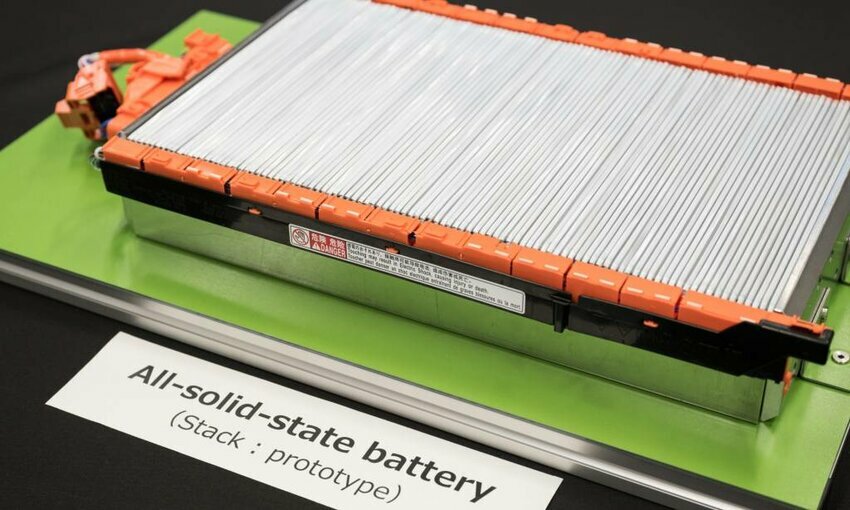 (Credit: Toyota)
(Credit: Toyota)Toyota has unveiled an ambitious plan to develop more advanced and efficient batteries for electric vehicles as well as a continued strategy to enhance the use of hydrogen as the automaker reaffirmed its commitment to transition its production to cleaner vehicles.
Toyota said it is planning to implement new battery technology that will include solid-state batteries that can charge in less than 10 minutes and potentially keep electric vehicles on the road for more than 620 miles at a time. The company said enhancing these technologies will help it increase its EV production as well as make the vehicles more enticing and cost-effective.
The next-generation batteries and a line of vehicles will be introduced in 2026 and Toyota plans to produce 1.7 million EVs by 2030 using its battery technology. The vehicles will be produced through a recently created unit called BEV Factory.
The square batteries will have more energy density than current EV batteries, according to Toyota. The company said the cruising range of the future EVs will also be increased through improved vehicle design efficiencies such as enhanced aerodynamics and weight reduction.
Improving battery technology and production is a significant priority in the industry as the focus on the electrification of transportation grows. Within the last month U.S. company Prieto Battery said it has developed a hyper-fast charging battery that can produce a full charge quicker than fueling a vehicle, while Hyundai, GM, and KORE Power made their own plans to significantly increase battery production and capacity.
At the same time, Toyota did not shy away from its commitment to hydrogen technologies in making cleaner transportation. The automaker said it is also planning a next-generation fuel cell system to expand the demand for hydrogen, especially for commercial use.
Toyota believes hydrogen is an important piece of international strategies to lower emissions and achieve carbon neutrality. The company said it is working with various industry partners to produce, transport, and use hydrogen.
Like the battery plan, Toyota is setting a 2026 date for new fuel cells that will improve the efficiency of commercial fleets through better maintenance, low costs, and low fuel use. Toyota also plans to increase the cruising range of these vehicles, typically trucks and buses, by 20%.
Part of this strategy includes developing and producing fuel cell electric vehicles as well as fuel cell stationary generators and hydrogen engine vehicles with internal combustion engines.
To evolve hydrogen production, Toyota said it has developed a new water electrolyzer and has begun trials of the technology. The company also plans to trial hydrogen production from biogas produced from chicken manure and food waste by the end of this year.
Hydrogen is seen as a big part of the international net-zero goals, and the International Energy Agency says it needs to account for 8% of the world’s emissions reductions through 2050. Earlier this month Japan allocated $107 billion to increase hydrogen development and use.